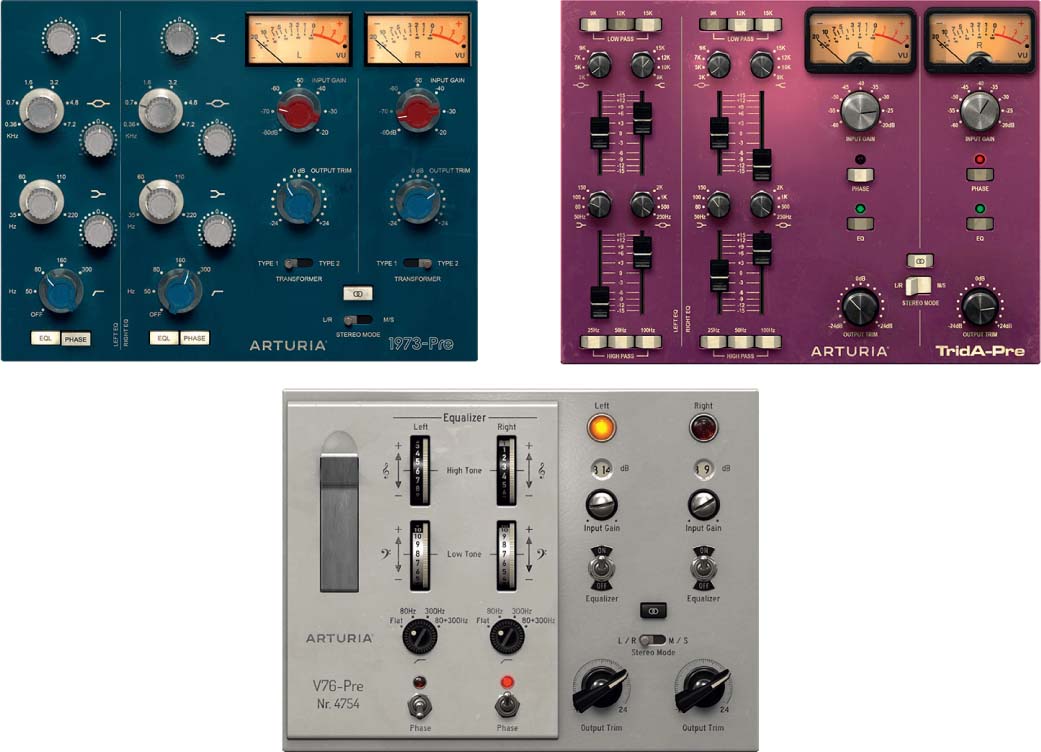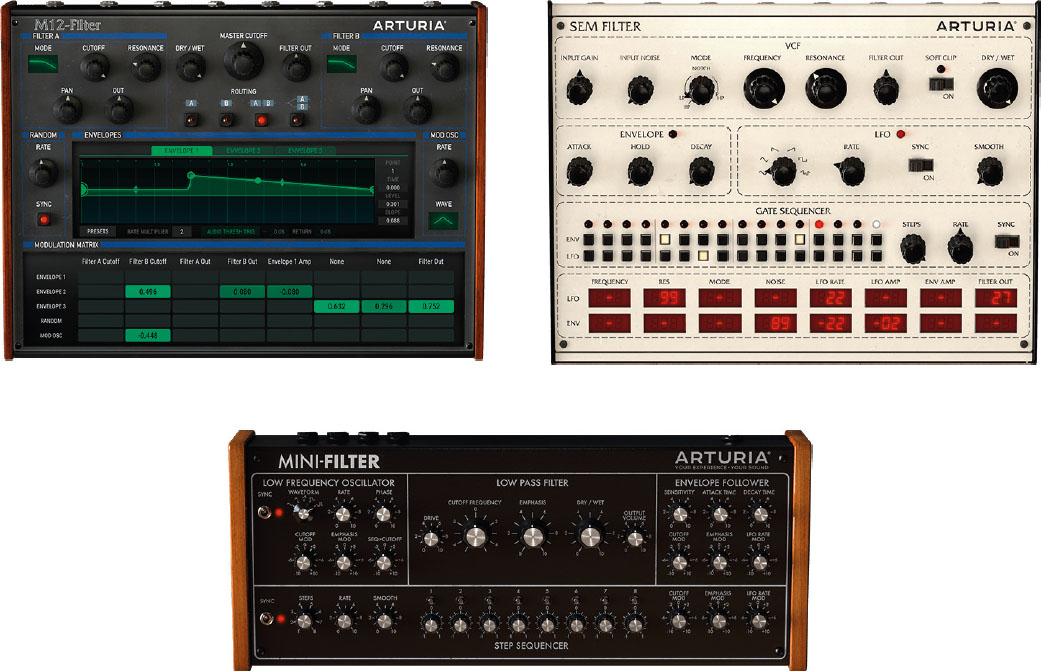
For me, there is something incredibly evocative about the sound of an old synth in a recording. However, I'm also a teacher and don't have the money (or space) to indulge in my dream studio of old synths, keyboards and other associated analogue gear. This is where companies like Arturia come in. It has been releasing incredible emulations of analogue gear for many years now, predominantly focused on early electronic instruments. Its latest products are recreations of three very famous preamps, and the filter sections from three famous synths, which can now be used in isolation without having to do any complicated routing with your software.
Three preamps
Arturia claims that the three preamps are ones that ‘you'll actually use’. This is a big statement given the number of different options that are out there. However, the three preamps that it has chosen are very famous indeed.
- 1973-Pre, based on the Neve 1073 solid-state preamp
- TridA-Pre, based on the preamp section from the Trident A-Range console
- V76-Pre, based on the Telefunken V76 used at Abbey Road
Studios on the White Album These are probably some of the nicest sounding preamps around, and each adds its own character to the sound of the recording in a pleasing way. The TridA and V76 are so rare that it is virtually impossible to acquire the originals and compare them to the plugin (there were only ever 13 Trident-A consoles built) but they were used in very famous studios and the list of artists that recorded on them reads like a who's who of popular music. However, I actually have access to a genuine Neve 1073 preamp and have used it a lot, so I have a good idea of how that sounds in recording.
The 1973-Pre adds a lovely sense of warmth to vocals and acoustic guitar. It emphasises the lower-mid frequencies without removing the high-end clarity. The natural compression from the preamp stage makes the audio feel a little louder throughout but without distortion. The genuine preamp compresses the sound a little more – but otherwise it's indistinguishable. This is a very useable preamp and will add a nice touch of depth to a recording without overpowering the original sound.
The TridA-Pre on the other hand added a real sense of clarity to the upper-mid and treble frequencies. When compared with my original recordings the audio got a lot brighter and brought out the individual picking on the guitar and the syllables in the (naturally bassy) vocal take. The TridAPre did run a lot hotter than the 1973-Pre and one would need to be very careful with gain settings to avoid overloading it and creating unwanted distortion.

Emulations of famous preamps
The V76-Pre is the subtlest of the three plugins. It contains the fewest controls and offers the user very few parameter tweaks. It is emulating a valve preamp and imparts some of the characteristics that I would expect to hear from that: it boosts the lows and highs, and leaves the mid-range frequencies relatively unaltered. However, this boost is quite subtle and enhances the characteristics of the sounds that were there before. As with the TridA-Pre, you should be careful with gain settings to avoid overloading it.
These three preamps all have very distinctive characteristics but my personal favourite is the V76-Pre. This simple plugin just sounded good on everything I put through it. It brought out the frequencies that I wanted to hear without sounding overly processed and changing the character of the sound too much. So Arturia's claim that these are preamp plugins that you will actually use is definitely true for me.
Filters
Also released at the same time is a set of filters taken from three classic synthesisers.
- Mini-Filter, the ladder filter from the famous Moog synth
- M12-Filter, taken from the Oberheim Matrix 12 synth
- SEM-Filter, from the Oberheim SEM
To describe these simply as filters is a bit harsh. All three contain envelopes, low-frequency oscillators and so on to alter the shape of your sound. These are taken from synthesisers but Arturia's idea is that you can then apply them to other instruments. I set about applying them to all sorts of different sounds and found them most useful on keyboard instruments. The M12 has a preset that automates modulation and sounds great on a Hammond organ to emulate the changing speed of a Leslie peaker. They also sounded great on an electric guitar to remove some of the harshness.
Summary
The preamp emulations are brilliant – any studio that is using cheap preamps built into a desk or an interface should invest in something like this to improve the quality of the capture for mixing. The V76-Pre was my favourite but all three have something to offer when recording. The filters are less essential for a school setting. They can offer some nice control over frequencies and add movement to sounds but are a nice added bonus rather than an essential plugin. Overall, however, I would thoroughly recommend these plugins to anybody.

Emulations of famous filters
Preamps €299 (£260); Filters €199 (£174)
Discounts available when bought together and for existing customers




